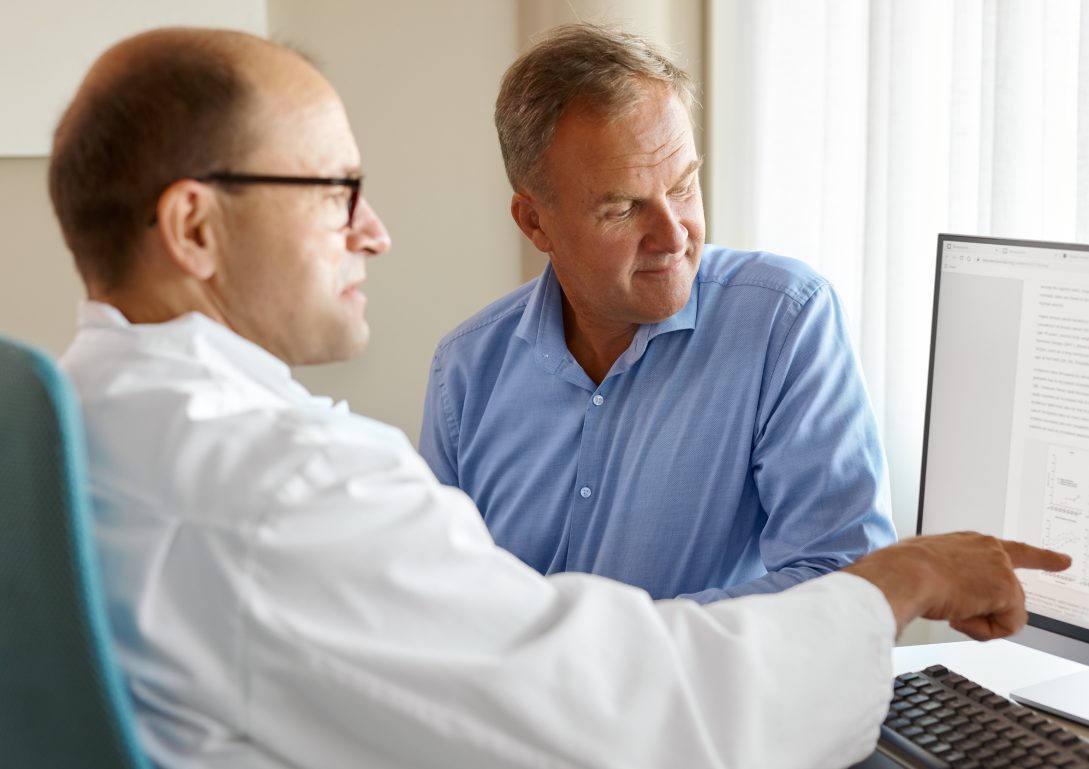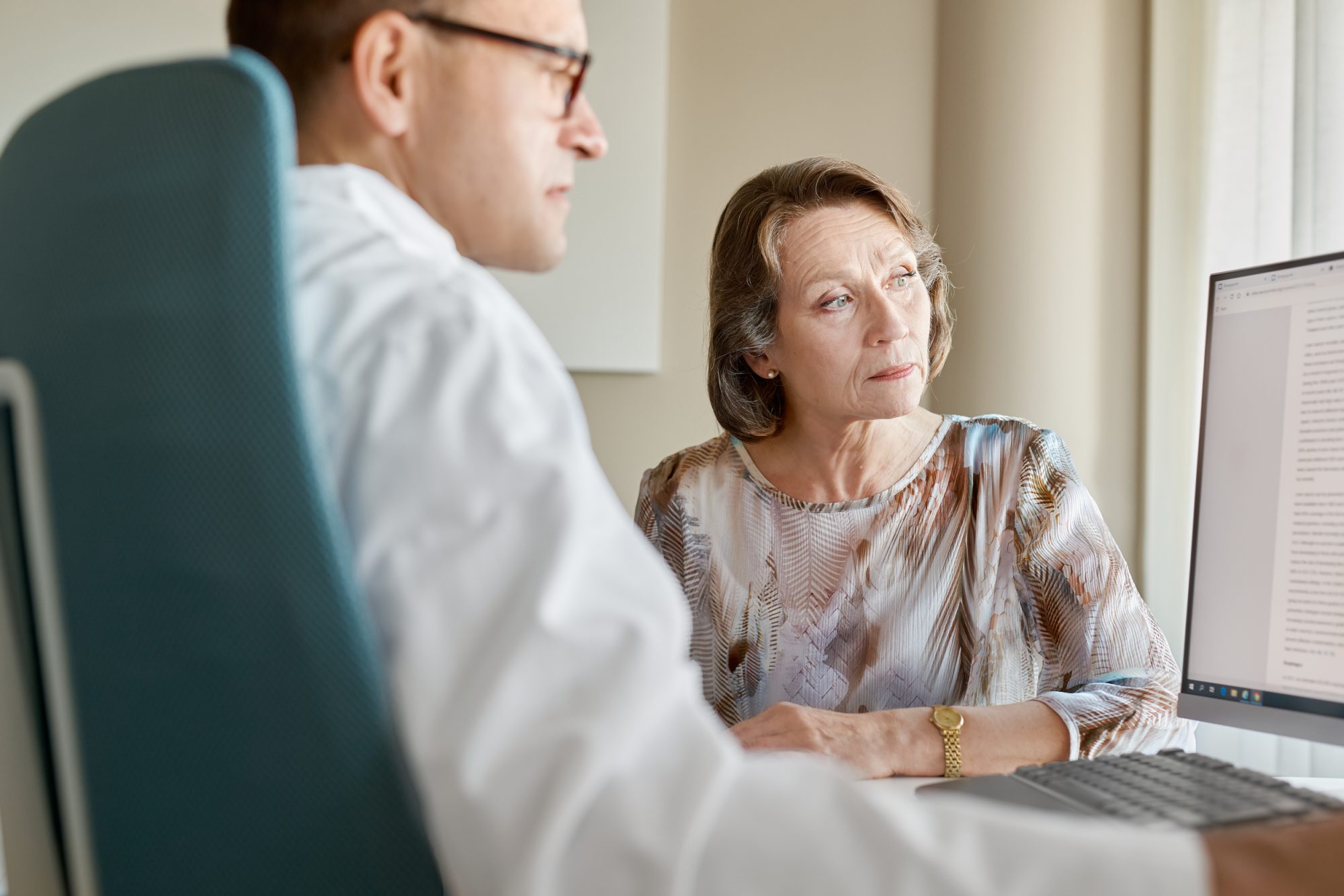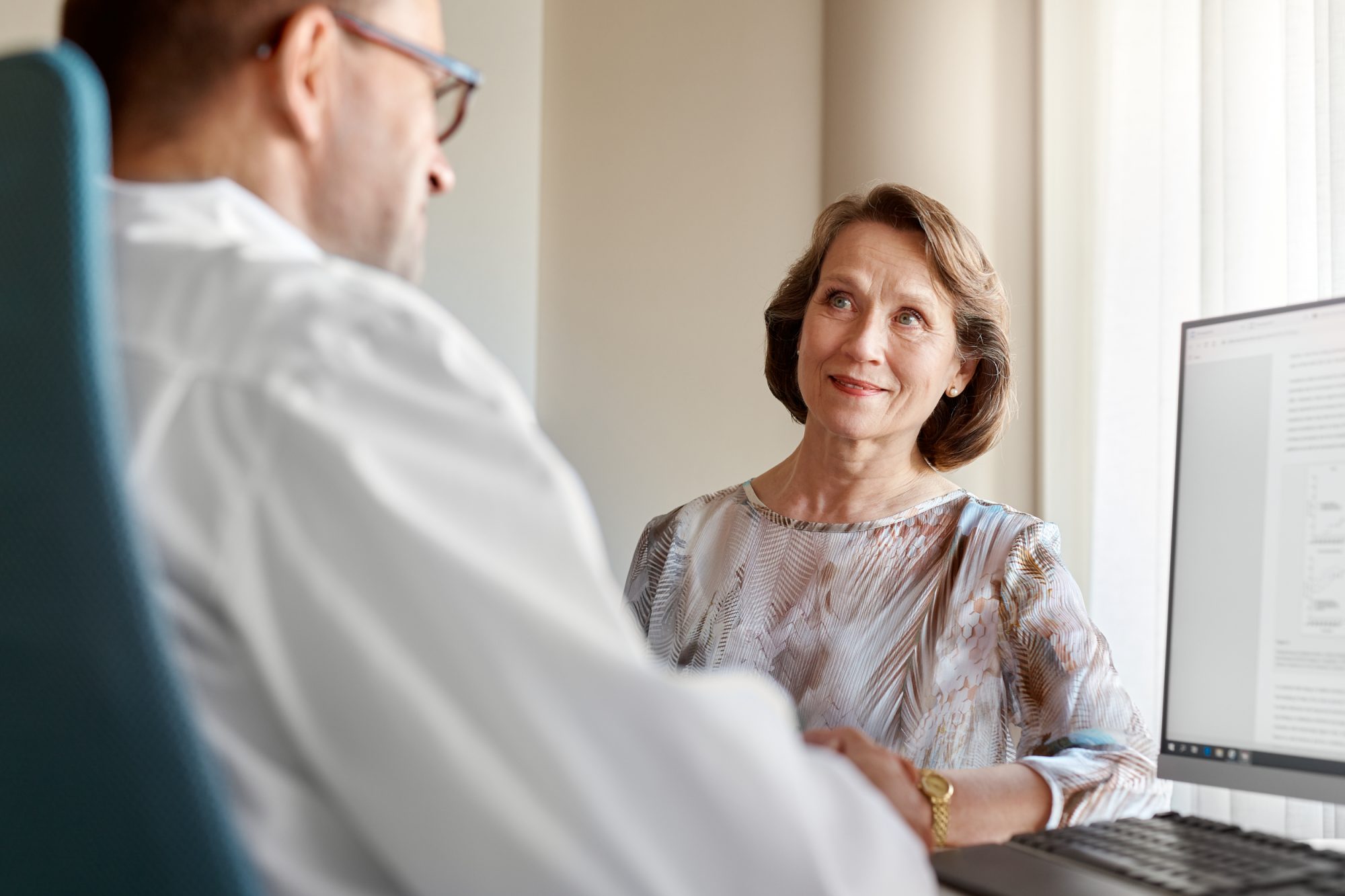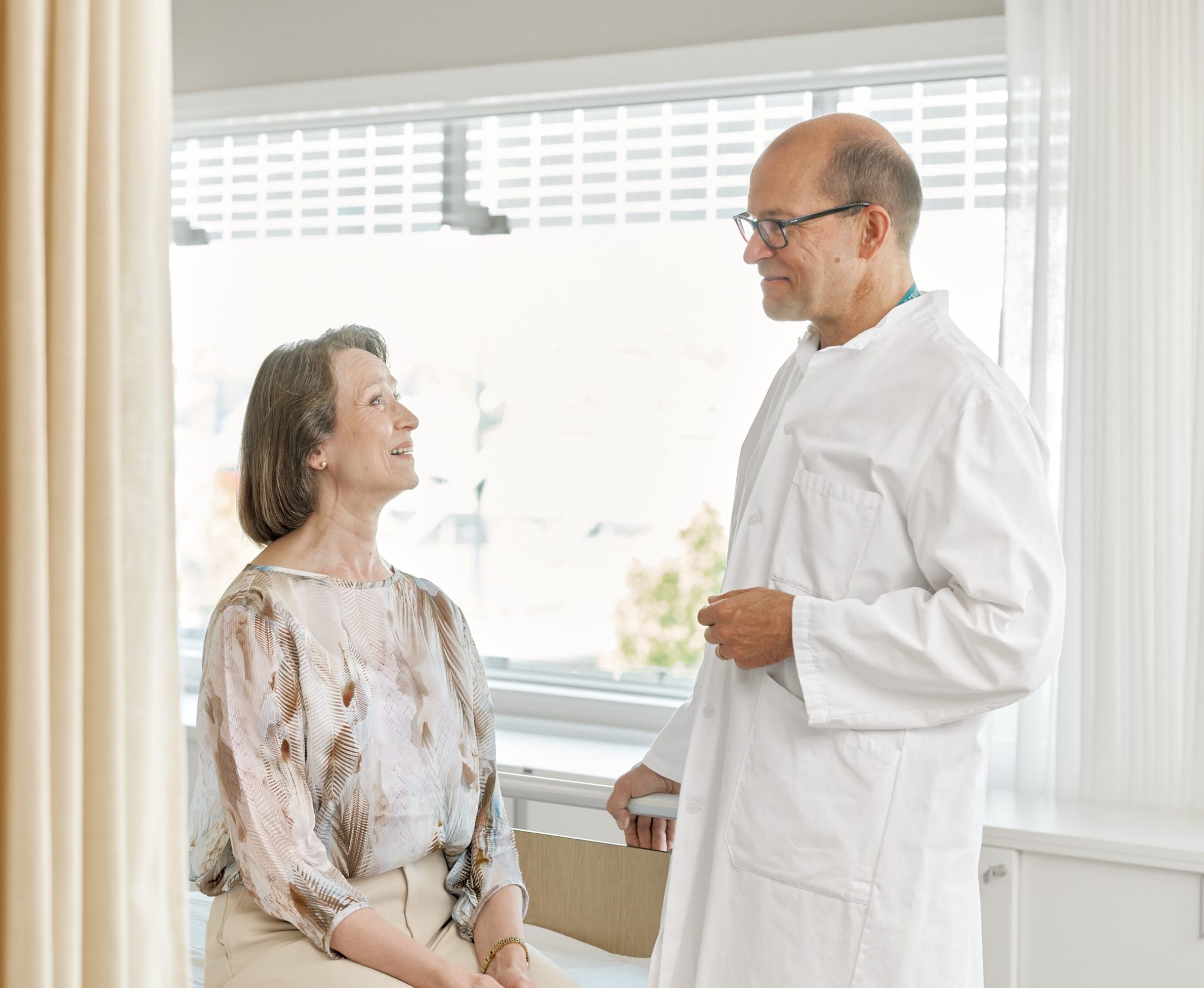Breast reconstruction surgery means meticulous craftsmanship by experienced surgeons
Reconstructing a removed breast is part of the treatment path of many breast cancer patients. The goal of the surgery...
Read moreMon–Thu 8–18, Fri 8–16

As the name implies, stomach cancer (also called gastric cancer) starts in the wall of the stomach.
As the name implies, stomach cancer (also called gastric cancer) starts in the wall of the stomach. Unlike many other cancers, the incidence of stomach cancer has decreased dramatically in Finland over the years. This is assumed to be due to reasons such as improved food preservation methods and better hygiene. The general improvement of hygiene has made Helicobacter pylori infections less common, which has also decreased the incidence of stomach cancer.
The tissue type of stomach cancer is determined with a microscope. Most stomach cancers, up to 95 per cent, are so-called adenocarcinomas that originate in glandular tissue. The rest are lymphomas that originate in lymphatic tissue and rare types of cancers, such as carcinoid tumors or GIST tumors. Their treatment is essentially different from the treatment of adenocarcinomas. Usually, when we talk about stomach cancer we mean adenocarcinoma. Adenocarcinoma can also be further classified into various sub-types based on its manner of growth or the genetic characteristics of the cancer cells. In terms of treatment, the role of these sub-types is likely to become more prominent in the future.
When detected early, stomach cancer is operable and curable. However, advanced stomach cancer is difficult to treat, and the treatment focuses on slowing down its progress.
Helicobacter pylori infections are known to increase the risk of stomach cancer. Other risk factors include obesity, smoking, carcinogen-rich diet and advanced age.
Stomach cancer typically does not present early symptoms. Its symptoms can be deceptively similar to those of benign stomach conditions, such as stomach ulcer or gastritis. Stomach cancer is often not detected until the tumor has spread through the stomach wall or metastasised to nearby lymph nodes or other organs.
Possible symptoms of stomach cancer include stomach pain and various digestive disturbances, such as vomiting, diarrhoea, loss of appetite and weight loss or swelling of the stomach after a meal. These symptoms are often related to advanced cancer.
Stomach cancer is diagnosed by gastroscopy and gastroscopic mucosal biopsy. In gastroscopy, a thin, flexible tube (gastroscope) is passed into the stomach through the mouth and throat. If necessary, the throat is anaesthetised and other medication is administered to make the examination more pleasant for the patient and to help the patient to relax. If the tumor is completely covered by the mucosal lining, it may be difficult to reach deep enough to obtain a biopsy. In such a case, the appearance and rigidity of the stomach wall can often give rise to suspicion of cancer. When necessary, anomalies of the stomach wall can also be assessed by an endoscopic ultrasound examination. Sometimes the diagnosis cannot be established until surgery is performed. A CT scan of the stomach or entire body is usually also performed prior to surgery.
As it grows, a cancerous stomach tumor may spread to the surrounding tissues (the pancreas, diaphragm, underside of the liver, abdominal wall), via lymphatic vessels to the lymph nodes or through blood circulation to the liver, lungs and bones.
The treatment of stomach cancer depends on the type and stage of the cancer and the patient’s general physical condition. There are four types of treatment:
In local stomach cancer, the primary treatment option is always surgery with a curative objective. Depending on the size and location of the tumor, part or all of the stomach may be removed. This is called subtotal or total gastrectomy. In addition, nearby lymph nodes are removed in order to excise cancerous cells that may have spread to the lymph nodes. This also gives important information on the stage of the cancer.
The risk of recurrence for small and superficial cancerous stomach tumors is low, and these are treated with surgery or just a local mucosal resection. If the tumor is any bigger, surgery may be supplemented with preoperative chemotherapy or postoperatively administered combination of radio- and chemotherapy.
Local recurrence of stomach cancer or appearance of metastases is possible, even if the surgery seemed completely successful and no metastases were detected at that time. If stomach cancer has spread to other organs, the patient is treated with chemotherapy. In cancers that involve Her2 gene overexpression, Her2-targeted therapy with trastuzumab is included in the treatment. Stomach cancer often responds relatively well to chemotherapy. Chemotherapy may reduce the size of tumors or arrest their growth for varying lengths of time. Cancer cells cannot usually be completely destroyed by chemotherapeutic agents, which is why it is very unlikely to achieve full recovery with chemotherapy. However, if the tumors respond to chemotherapy well, it can significantly improve the patient’s life expectancy and relieve symptoms. The statistical life expectancy of patients with advanced stomach cancer has continuously increased, albeit rather slowly.
The impact of immunological treatment on stomach cancer is currently being investigated in wide-scale studies. Immune checkpoint blockers are antibodies that boost the body’s own immune system’s ability to fight against cancerous cells. Within EU, stomach cancer is not as of yet an official subject for immunological treatment, but it is likely that the situation will change over the coming years.
At Docrates Cancer Center special attention is paid on individually tailored stomach cancer treatments in order to achieve the best possible treatment result and quality of life for each patient. Precise imaging forms the basis of individually tailored treatments.
Patients suspecting they may have stomach cancer or patients with a stomach cancer diagnosis are directed to our specialist with no delay, no referral required. Our friendly personnel understand the fears and concerns related to cancer and help support patients throughout their treatment.
Our multiprofessional team of experts provides each stomach cancer patient with individually tailored and comprehensive diagnostics and treatment, and possibility for the newest pharmacological products. We treat our patients according to the latest international and domestic treatment recommendations.
Our team comprises numerous specialist doctors, including oncologists, radiotherapy doctors, gastroenterologists, surgeons, nuclear medicine physicians, a radiologist, a pathologist, as well as nurses, who are all experienced experts in treating cancer. The members of this multiprofessional team work in close collaboration to ensure accurate diagnostics and the best possible treatment plans. We also offer complementary services such as physiotherapy and nutritional counselling.
At Docrates you have the opportunity to participate in clinical drug trials, which are free of charge for patients.
Reconstructing a removed breast is part of the treatment path of many breast cancer patients. The goal of the surgery...
Read more
New forms of treatment based on molecular diagnostics enable more and more patients to completely recover from cancer, and make...

With a transaction signed on 2 September 2024, Mehiläinen has acquired Docrates Ltd, as a result of which Docrates Cancer...

On 27, August 2024, the Finnish Competition and Consumer Authority (FCCA) approved the merger of Mehiläinen and Docrates Cancer Center....
Contact us!
Mon-Thu 8:00-18:00, Fri 8:00-16:00
